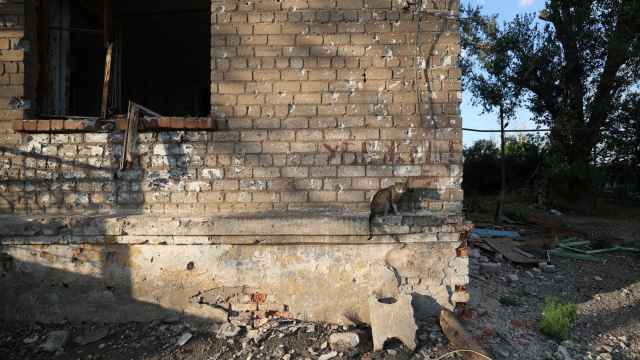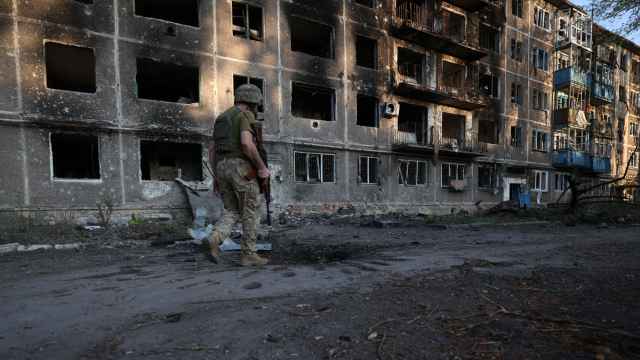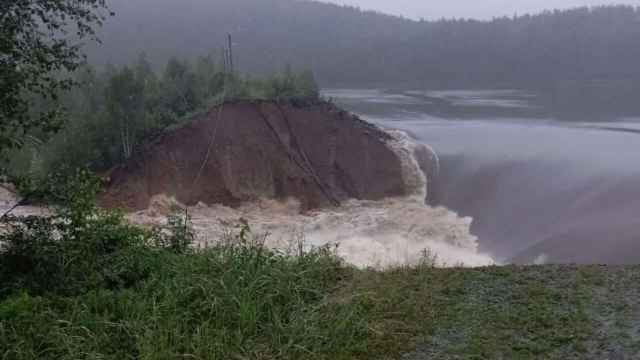Russia's Investigative Committee has set its sights on various high-ranking Ukrainian officials in a "genocide" case launched earlier this week over the conflict in Ukraine's turbulent east.
Ukrainian Defense Minister Valeriy Heletey, General Staff chief Viktor Muzhenko, brigade commander Oleg Mikas and "other unidentified persons" are among the suspects in the case, the Investigative Committee said Thursday.
Russian investigators say these men are to blame for 3,000 civilians killed, 5,000 injured and 300,000 displaced in the fighting in eastern Ukraine between July and September.
"Heletey, Muzhenko, Mikas and commanders of the 93rd Brigade willfully, in violation of the 1948 international Genocide Convention … issued orders aimed at the total destruction of a national group of Russian-speaking persons residing in the territories of Luhansk and Donetsk," the statement read.
The United Nations convention referenced in the statement defines genocide as killing, harming, imposing poor living conditions on, sterilizing, or expelling the children of a national, ethnic, racial or religious group with the intention of eliminating the group, either entirely or partially.
Russian legislation does not provide a platform for charging foreigners over crimes against other foreigners committed outside Russia. But Russia can present its findings to the International Criminal Court in the Hague, which in turn could launch its own investigation and ultimately prosecute.
Though the Ukrainian officials are only listed as suspects, their involvement in the deaths of civilians is "completely obvious," said the Investigative Committee, a powerful security service directly subordinate to the Russian president.
The committee — which handles most high-profile political cases in Russia — launched the case on Monday, but did not name any suspects at the time.
In a separate case, it accused Ukrainian Interior Minister Arsen Avakov and pro-Kiev tycoon Ihor Kolomoyskyi of war crimes in July.
Ukraine retaliated by launching a case against Russian Defense Minister Sergei Shoigu.
Until a fragile cease-fire was established on Sept. 5, a five-month pro-Russian insurgency raged in eastern Ukraine, a predominantly Russian-speaking territory with a population of 6.5 million.
Ukraine accused Russia of backing the rebels with troops and equipment. Moscow confirmed that Russian soldiers were fighting with the insurgents, but said they were "volunteers."
In late September, the UN pegged the total death toll in the conflict at 3,500, including civilians and combatants.
A Message from The Moscow Times:
Dear readers,
We are facing unprecedented challenges. Russia's Prosecutor General's Office has designated The Moscow Times as an "undesirable" organization, criminalizing our work and putting our staff at risk of prosecution. This follows our earlier unjust labeling as a "foreign agent."
These actions are direct attempts to silence independent journalism in Russia. The authorities claim our work "discredits the decisions of the Russian leadership." We see things differently: we strive to provide accurate, unbiased reporting on Russia.
We, the journalists of The Moscow Times, refuse to be silenced. But to continue our work, we need your help.
Your support, no matter how small, makes a world of difference. If you can, please support us monthly starting from just $2. It's quick to set up, and every contribution makes a significant impact.
By supporting The Moscow Times, you're defending open, independent journalism in the face of repression. Thank you for standing with us.
Remind me later.






